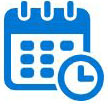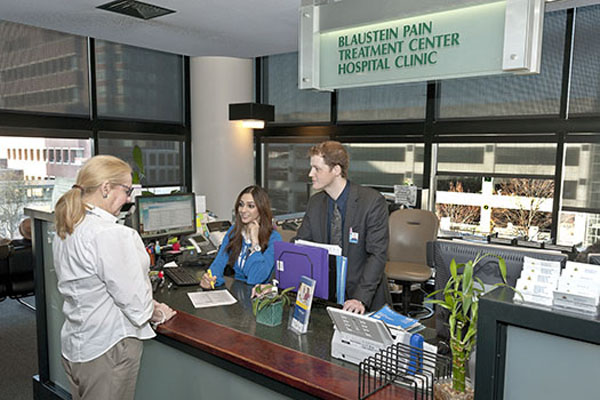
What We Do:
Pain is a complicated, often debilitating medical problem that can have a major impact on your physical and mental well-being. The Johns Hopkins Blaustein Pain Treatment Center at The Johns Hopkins Hospital offers a comprehensive range of services for patients suffering from acute or chronic pain.
The Blaustein Pain Treatment Center’s team of pain medicine specialists provides some of the world’s most advanced treatment options in a supportive, compassionate environment. Our doctors care for thousands of patients on an inpatient and outpatient basis each year. They have helped patients return to independence and comfort, and have restored their quality of life.
Mission
The mission of the Blaustein Pain Treatment Center is to provide safe, state of the art care to patients in pain by promoting strong clinical service, education, and research.
- Clinical Service – To serve as a pain center of excellence in a coordinated, multidisciplinary approach that enhances the quality of human life.
- Education – To provide evidence-based education and comprehensive training in the field of pain medicine
and develop the future leaders in the field. - Research – To promote and pioneer basic and clinical research aimed at developing novel pain management strategies.
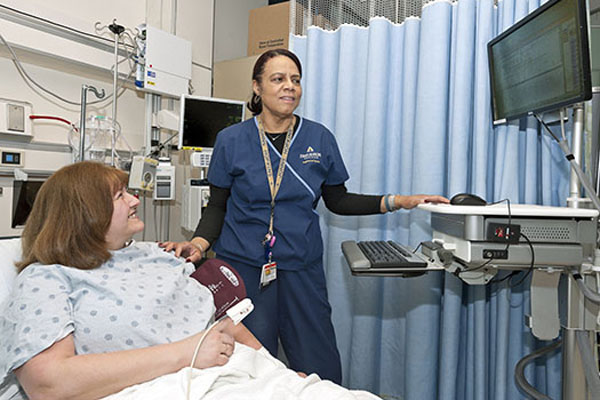
The team at The Johns Hopkins Blaustein Pain Treatment Center provides consultations, procedures and follow-up care to patients suffering from many types of pain. Along with our expert physicians, our team includes physician assistants, nurses, clinical associates, radiology technicians and administrative support staff. Up to 10,000 patients are seen annually by our dedicated team of pain management specialists.
Our world-renowned staff works side-by-side with Johns Hopkins’ acclaimed neurosurgical, orthopedic, psychiatric and physical medicine specialists. Together, we’re committed to relieving the pain and improving the lives of our patients.
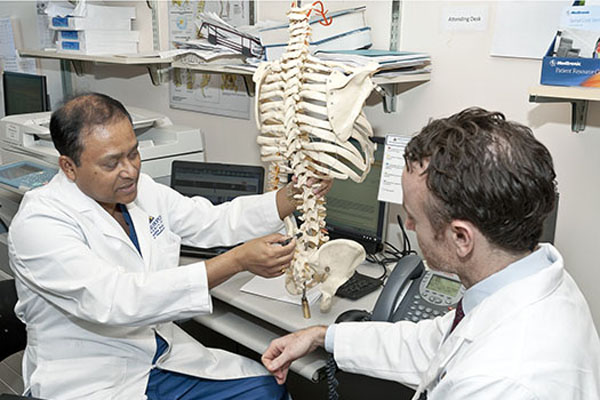
Pain is an uncomfortable feeling that tells you something may be wrong. It can be steady, throbbing, stabbing, aching, pinching, or described in many other ways. Sometimes, it’s just a nuisance, like a mild headache. Other times it can be debilitating.
Pain can bring about other physical symptoms, like nausea, dizziness, weakness or drowsiness. It can cause emotional effects like anger, depression, mood swings or irritability. Perhaps most significantly, it can change your lifestyle and impact your job, relationships and independence.
Pain is classified as either acute or chronic. Acute pain is usually severe and short-lived, and is often a signal that your body has been injured. Chronic pain can range from mild to severe, is present for long periods of time, and is often the result of a disease that may require ongoing treatment.
Currently, the best way to treat the pain is to manage the symptoms. If the source of your pain can’t be treated, or isn’t known, our pain medicine specialists can offer options for pain control.
At the Johns Hopkins Blaustein Pain Treatment Center, we provide treatment for the following types of pain:
- Low back pain
- Spinal stenosis
- Vertebral Compression Fractures
- Cervical and lumbar facet joint disease
- Sciatica/Radiculopathy (“pinched nerve”)
- Sacroiliac joint disease
- Failed back surgery pain (FBSS) / Post-Laminectomy Neuropathic Pain
- Neuropathic (Nerve) pain
- Head pain / Occipital neuralgia (Scalp/head pain)
- Hip pain
- Intercostal neuralgia (Rib pain)
- Peripheral neuropathy (Diabetic nerve pain)
- Complex regional pain syndrome (Reflex Sympathetic Dystrophy – RSD)
- Herniated discs and degenerative disc disease (discogenic pain)
- Neck pain
- Shoulder and knee arthritic pain (osteoparthritis)
- Myofascial (Muscular) pain
- Post surgical pain
- Cancer pain (pancreatic, colorectal, lung, breast, bone)
- Pain from peripheral vascular disease
- Anginal pain (chest pains)
- Post-herpetic neuralgia (shingles pain)
- Nerve entrapment syndromes
- Spastisticy related syndromes/ pain
- Spinal Cord Injury (central pain)
- Pelvic pain
- Thoracic outlet syndrome
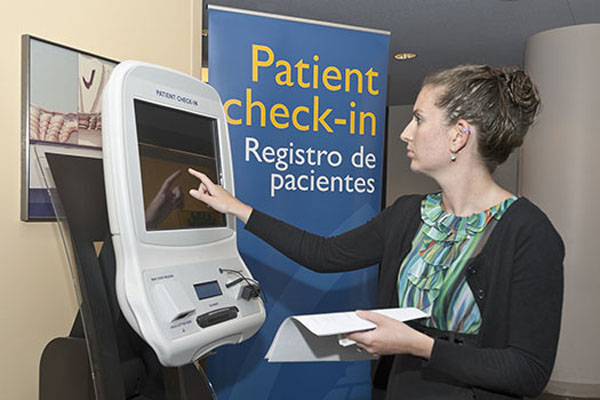
How do I become a new patient?
You must be referred by your primary care physician, surgeon or specialist. The referring physician can complete our consult questionnaire and fax it directly to us. We will evaluate the form and contact you to schedule an appointment for consultation. If your insurance requires you to have a referral, you must also obtain an appropriate referral from your primary care physician.
Why do I need a referral from my doctor if my insurance does not require referrals?
We understand your time is valuable. We will evaluate the medical information provided to us by your referring physician to ensure we are an appropriate place for you to receive treatment.
What types of insurance do you accept?
We accept most major health care plans. Please contact us at 410-955-5078 and speak with a representative to verify that we accept your insurance.
What kind of bills will I receive?
Since we are a hospital-based clinic, you will receive two bills. The first bill is from the physician for his/her services. The second is a facility fee from the clinic.
What can I expect during my first visit?
You will be evaluated initially by one of our resident phsyicians or pain fellows who will gather important information about your pain and perform a physical exam. After hearing about your pain history and pain examination, one of our faculty pain physicians will discuss options for treatment and answer your questions. The faculty physician will guide your course of treatment, although you will encounter different residents and fellows during your visits.
Who will be involved in my care?
You will be seen by various medical professionals during your visit. Since we are an academic teaching institution, there will be residents and fellows involved in your care working under the direction of your attending physician. This offers the advantage of many physicians thinking about your conditions and care. There will also be nurses and clinical associates who assist with your care during your visit.
What can I expect when I call to speak with my doctor?
We do offer a physician answering line that allows you to leave a message for a physician. Your call will usually be returned by one of our residents or fellows who have access to your medical records from our clinic. If they are unable to assist with your question or problem, your call will be directed to the attending physician.
What course of treatment can I expect from this clinic?
We typically perform an initial consultation and then decide on the best course of treatment. This may include injections, implantations, medications, physical therapy, behavioral therapy (pain psychology), the in-hospital pain program, enrollment in one of our research studies, or even no further clinic treatment. If we recommend certain pain medications, we may ask your primary care physician to assist us in prescribing them, especially once you have achieved a stable dose of medication. We strive to schedule injections within two weeks of the initial consultation. If we have an opening in the schedule, we may be able to schedule an injection on the same day of your initial clinic consultation.
What can I expect if I’m talking opioids (narcotics) and my doctor will no longer write the prescriptions?
We will evaluate your list of medications during the initial visit and provide our recommendation about continuing opioid therapy. We may recommend another course of treatment that does not include opioids. We do not write prescription for opioids on the first clinic visit, so please do not arrive with the expectation that we will automatically refill your prescription.
Why can’t I drive or eat if I’m scheduled for a procedure?
Some procedures may require sedation that prevents you from safely eating or drinking. Also, some procedures may inhibit movement in parts of your body that would make it difficult or unsafe for you to drive. Since we cannot be sure how the treatment will affect you, we require you to follow instructions that will be provided.
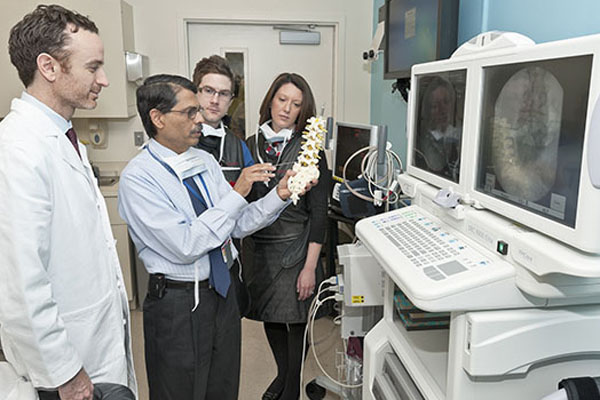
- Epidural Injections
- Interlaminar (midline) Epidural Steroid injection
- Transforaminal Epidural Steroid injection
- Epidural Blood Patch
- Selective Nerve Root Injections
- Facet joint injections
- Medial Branch blocks
- Intrarticular Facet Joint injection
- Radiofrequency Ablation / Neurolysis / Denervation
- Medial Branch Nerves
- Intercostal Nerves
- Pulsed Radiofrequency Interventions
- Intervertebral Procedures
- IDET / Annuloplasty / Biaculoplasty
- Plasma Disc Decompression / Nucleoplasty
- Discography / Discogram
- Functional Anesthetic Discography
- Sympathetic Nerve Blocks
- Stellate Nerve block
- Celiac Plexus block
- Lumbar Sympathetic Plexus block
- Superior Hypogastric Plexus block
- Ganglion Impar block
- Sympathetic Nerve Neurolysis / Ablation
- Stellate Nerve Neurolysis
- Celiac Plexus Neurolysis
- Lumbar Plexus Neurolysis
- Superior Hypogastric Plexus Neurolysis
- Ganglion Impar Neurolysis
- Neuromodulation
- Spinal Cord Stimulation
- Peripheral Nerve Stimulation
- Sacral Nerve Root Stimulation
- Intrathecal Medication delivery
- Vertebral Interventions for Compression Fractures
- Peripheral Nerve blocks
- Iliohypogastric
- Ilioinguinal
- Genitofemoral
- Intercostal
- Occipital
- Supratrochlear
- Supraorbital
- Pudendal
- Joint Injections
- Hip
- Knee
- Sacroiliac
- Shoulder
- Bursa Injections (Bursitis)
- Intravenous Medication Diagnostic Infusion
- Trigger Point Injections
- Botox Injections
- CT / Fluoroscopy
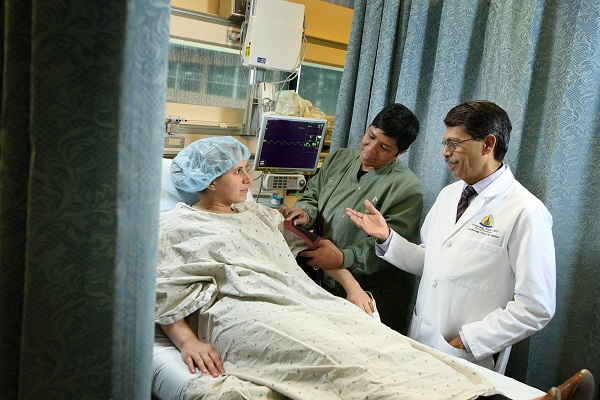
Food/Drink Restrictions
- Nothing to eat or drink after midnight if your procedure is scheduled between 7am and noon.
- Nothing to eat or drink after 7:00 AM if your procedure is scheduled between noon and 4pm.
- NOTHING (including gum, candy…) 2 hours before the time you are told to arrive in the clinic.
- If you have diabetes, gastric reflux, hiatal hernia, or any disease of your stomach, DO NOT drink any liquids for 6 hours before you are told to arrive at the clinic.
Medication Restrictions
- At any time before the procedure, you should take your usual medications with a small sip of water unless specifically asked not to do so by the Pain Clinic staff.
- Please contact us two weeks before your appointment if you are diabetic or if you are taking any type of blood thinners, including (but not limited to), plavix, coumadin, lovenox, heparin
- Do not take any pain medication the day of your procedure unless you have been told otherwise by your pain physician. (Some procedures require you to have pain in order to determine effectiveness).
Arrival Time for Appointment
Arrive at least 30 minutes before your scheduled procedure time. Please bring your insurance card, orange hospital plate and picture identification. If you are late, your procedure may be canceled.
Driving
You may not drive the day of the procedure. You must have an escort to drive you home. (Taxi is an acceptable form of transportation, but you still must have an escort with you.)
Pain
If you are not experiencing your usual pain on the day of your procedure, please contact us because the procedure may need to be postponed depending on the type of procedure you are having.
Pain Questionnaire ![]()
Please complete this form and bring it to your first appointment. It asks for information about your current problems and past medical history. It will give your doctor a better understanding of your problem, and will allow us to spend more time discussing your treatment with you.
Pain Questionnaire Follow-up ![]()
If you are returning to the clinic for a follow-up visit, please save time by completing this form at home and bringing it with you on the day of your appointment.
Opioid Consent Form ![]()
This form must be completed if your doctor determines that opioid therapy is an appropriate treatment option for you. If you are currently taking opioids prescribed by another physician, you must bring all opioid medications in their original containers to your first appointment.
Johns Hopkins Blaustein Pain Treatment Center
Johns Hopkins Outpatient Center
601 North Caroline Street, Suite 3062
Baltimore, MD 21287
Phone: 410-955-7246
Fax: 410-367-2047
Clinical Operations Manager
Holly Williams
410-955-7246
Directions to the Outpatient Center
Johns Hopkins Bayview Medical Center
4940 Eastern Ave, BMO Building Level 3
Baltimore, MD 21224
Howard County Charter Drive MSK Clinic
10700 Charter Drive, Suite 205
Columbia, MD 21044
Johns Hopkins Health Care and Surgery Center at Bethesda
6420 Rockledge Drive, Suite 4920
Bethesda, MD 20817
Johns Hopkins Health Care and Surgery Center at Green Spring Station
10803 Falls Rd, Pavilion III Suite 2100
Lutherville, MD 21093
Johns Hopkins Health Care and Surgery Center at White Marsh
4924 Campbell Blvd.
Suite 110
Nottingham, MD 21236
Suburban Outpatient Center
6420 Rockledge Drive
Suite 3700
Bethesda, MD 20817
Appointment Information
410-955- PAIN (7246)
